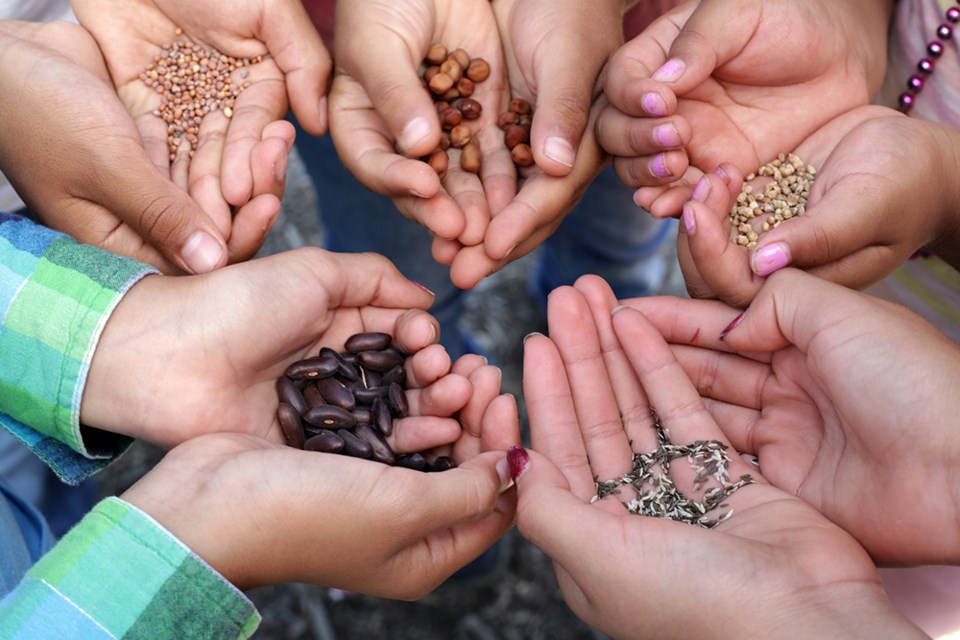Witnessing a tiny seed’s transformation into a nourishing root instills appreciation that a visit to the grocery store cooler cannot mimic. Growing food takes time and skill – something gardeners know well.
When rust flies devastate a crop, growers feel the loss much more than with the discovery of some wilted carrots abandoned at the back of the fridge. There is an inherent rightness in connecting with the life cycle of food.
The first hints of spring are sprouting, as are preparations to plant seeds for harvest in late spring onward. qathet’s Seedy Saturday, hosted at Powell River Recreation Complex, starts at 10 am on March 11. Beyond workshops on environmentally responsible gardening practices, it offers an opportunity to trade and pick up locally grown, resilient varieties of seed.
Seed saving has been key to humanity’s survival for millennia. Only recently have many lost this drive and basic know-how for propagation – something disconnecting us from the regenerative capacity of life.
Selecting the best seeds and preserving them for the next planting might even be called an act of rebellion in an age when some suggest seed ownership be controlled. Seed saving activist Vandana Shiva – also author of 20 books and 500 papers in scientific journals, says, “The time has come to reclaim the stolen harvest and celebrate the growing and giving of food as the highest gift and the most revolutionary act.”
For those who lack the time, opportunity or inclination to grow, farmers’ markets and local grocers provide the harvest. Preventing food waste is a way to honour their efforts, the soil and our wallets. 21 per cent of the food Canadians waste at home is avoidable and costs households an average of $158 per month. In an age of food insecurity and rising prices, we are more motivated than ever to prevent such waste.
Reviving food is possible. We can do a little CPR to rescue food otherwise destined for the compost or worse.
Wilted vegetables left to soak in ice water for 10 minutes will perk up and get some of their crunch back. Stale chips, crackers and bread will crisp in a toaster oven. Overcooked vegetables are easy to puree and perfect as a soup base. Add vinegar, lemon juice or unsalted broth to save an over-salted soup.
Love up food nearing, but not at, its end of life by drawing attention to it. Every refrigerator should host a shelf of bin for “eat me first” items. These are ideal additions to soups, smoothies, or as pizza toppings. Include a scan of your refrigerator as part of your meal planning.
Best before dates mistakenly understood can send perfectly good food to the waste bin. This date refers to when food is at its peak freshness and taste rather than the date it is no longer safe to consume. Caution should always be exercised, especially with meat and dairy. That said, the nose often knows.
Find more food waste prevention tips at LoveFoodHateWaste.ca.
Whether you plan to plant, support local farmers or take better care of the food in your fridge, you are creating seeds of change for the earth. The more we love up food at all phases of its journey, the greater our connection to and care for the earth.
Let’s Talk Trash is contracted by qathet Regional District to deliver its waste reduction education program. For more information, email [email protected] or go to LetsTalkTrash.ca.



